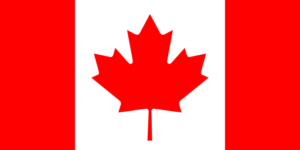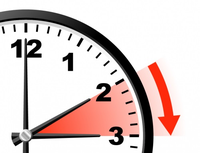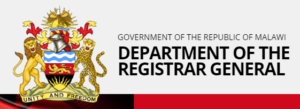 Canada has joined the Madrid Protocol. The Protocol will enter into force for Canada on June 17, 2019. Continue reading “Canada joins Madrid Protocol”
Canada has joined the Madrid Protocol. The Protocol will enter into force for Canada on June 17, 2019. Continue reading “Canada joins Madrid Protocol”
Whither Daylight Saving Time?
More than five hours have passed since my blog posting that points out that right now you probably have an extra hour for e-filing of stuff at the International Bureau of WIPO. Why do you have this extra hour? You have this extra hour because probably you are in the US and you set your clocks forward. And (this is the important part) the folks in Switzerland did not pick today to set their clocks forward. (They will set their clocks forward in about three weeks, on March 31.)
Anyway, during this past five hours I sort of figured that at least one alert reader would have posted a comment about the imminent demise of Daylight Saving Time. Yet, astonishingly, this has not happened! So I will now discuss the imminent demise of Daylight Saving Time. Continue reading “Whither Daylight Saving Time?”
e-filing at WIPO – you get an extra hour
 It’s that time of year again. People in the US who sometimes e-file stuff at the International Bureau at WIPO will have memorized exactly what the local time is that works out to being midnight in Switzerland … and for the next three weeks, the answer to this question will be different from the usual answer. Continue reading “e-filing at WIPO – you get an extra hour”
It’s that time of year again. People in the US who sometimes e-file stuff at the International Bureau at WIPO will have memorized exactly what the local time is that works out to being midnight in Switzerland … and for the next three weeks, the answer to this question will be different from the usual answer. Continue reading “e-filing at WIPO – you get an extra hour”
Who charges how much for foreign payments?
As readers of this blog are by now well aware, my most recent obsession area of inquiry has been the sending and receiving of international bank wires. More or less by accident I have stumbled upon smart ways to receive international bank wires. As I describe in this blog article, more or less by accident our situation is that for our patent firm, we now receive our incoming foreign bank wires free of charge through Afex.com, and for my personal bank account, I receive my incoming foreign bank wires free of charge because the bank is USAA.
As for the foreign sender of funds, if the foreign sender of money to our patent firm happens to be a customer of Afex.com, they can send money to us and they will likewise not have to pay any fee (other than perhaps a currency conversion fee).
But how about sending bank wires? Who charges more and who charges less for sending bank wires to foreign countries? Here is a specific example of what it would cost to send about ten thousand dollars to Switzerland by any of three different providers. I find the price differences to be striking. Continue reading “Who charges how much for foreign payments?”
Madrid Portfolio Manager adds nice feature

The nice folks at WIPO who take care of Madrid Protocol stuff have quietly added a nice feature to the Madrid Portfolio Manager, as you can see in the notice at right. Continue reading “Madrid Portfolio Manager adds nice feature”
US filers and filing at WIPO and daylight saving time
 Keep in mind that most locations in the US will turn off daylight saving time today, but today is not the day that Switzerland will turn off daylight saving time. (Switzerland turned off DST a week ago.)
Keep in mind that most locations in the US will turn off daylight saving time today, but today is not the day that Switzerland will turn off daylight saving time. (Switzerland turned off DST a week ago.)
Those who are filing documents at the International Bureau — documents that need a same-day filing date — should check to make sure they know what time it is in Switzerland as of today.
The main point here is that for a US filer, everything is now “back to normal”. Whatever time zone offset a US filer is accustomed to between his or her time zone and Geneva, that offset is back to normal.
ePCT will tell you what time it is in Switzerland.
Daylight saving time and WIPO
 Keep in mind that Switzerland will turn off daylight saving time today. Those who are filing documents at the International Bureau — documents that need a same-day filing date — should check to make sure they know what time it is in Switzerland as of today.
Keep in mind that Switzerland will turn off daylight saving time today. Those who are filing documents at the International Bureau — documents that need a same-day filing date — should check to make sure they know what time it is in Switzerland as of today.
For US filers, keep in mind that the US will not turn off DST today. The US will turn off DST a week from now.
US filers who are getting ready to file a document at the IB should thus pay close attention during this next week to what time it is in Switzerland.
The practical effect for most US filers is that for the next week, you get an extra hour to e-file. For example if you are in the Mountain Time Zone, normally you rush to file by 4PM if need a same-day filing date at the IB. But for the next week you can file as late as 5PM and you will still get a same-day filing date at the IB.
![]() Those who are e-filing in ePCT can readily check any time to see what time it is in Geneva, because at the top of any ePCT user screen it says what time it is in Geneva. Here is a screen shot. For example right now it is 4:44 AM Mountain Time and as you can see it is 11:44 AM in Geneva.
Those who are e-filing in ePCT can readily check any time to see what time it is in Geneva, because at the top of any ePCT user screen it says what time it is in Geneva. Here is a screen shot. For example right now it is 4:44 AM Mountain Time and as you can see it is 11:44 AM in Geneva.
Are you a user of Madrid Protocol? Will you be in Washington on October 27?
Are you a user of the Madrid Protocol? Will you be in Washington, DC on Saturday, October 27?
If so, then please consider helping the World Intellectual Property Organization (WIPO) — and yourself — by attending a focus group of US users of the Madrid system at 7AM on that day at the Washington Marriott Wardman Park hotel in Washington, DC. Although WIPO’s focus group will be held in conjunction with the AIPLA Annual Meeting, you do not need to be registered for the Annual Meeting to participate in the focus group.
Continue reading “Are you a user of Madrid Protocol? Will you be in Washington on October 27?”
NAFTA 2.0 and patents and trademarks
The new NAFTA agreement has some very interesting consequences for patents and trademarks. Continue reading “NAFTA 2.0 and patents and trademarks”
Malawi joins Madrid Protocol

Starting from December 25, a trademark owner in Malawi can file a Madrid Protocol application to pursue protection in one or more Offices outside of Malawi. And starting from that date, a trademark owner outside of Malawi can file a Subsequent Designation to Malawi (or can file a new Madrid Protocol application designating Malawi).
It is recalled that the Patent Cooperation Treaty entered into force on January 24, 1978, initially with 18 contracting states. But perhaps not all readers appreciate that Malawi was one of those initial 18 contracting states for the PCT! Saying this differently, Malawi was more trendy, modern, and up-to-date about the PCT than most of the 152 present-day members of the PCT. Nobody joined PCT sooner than Malawi!
The two-letter code for Malawi is “MW”.
